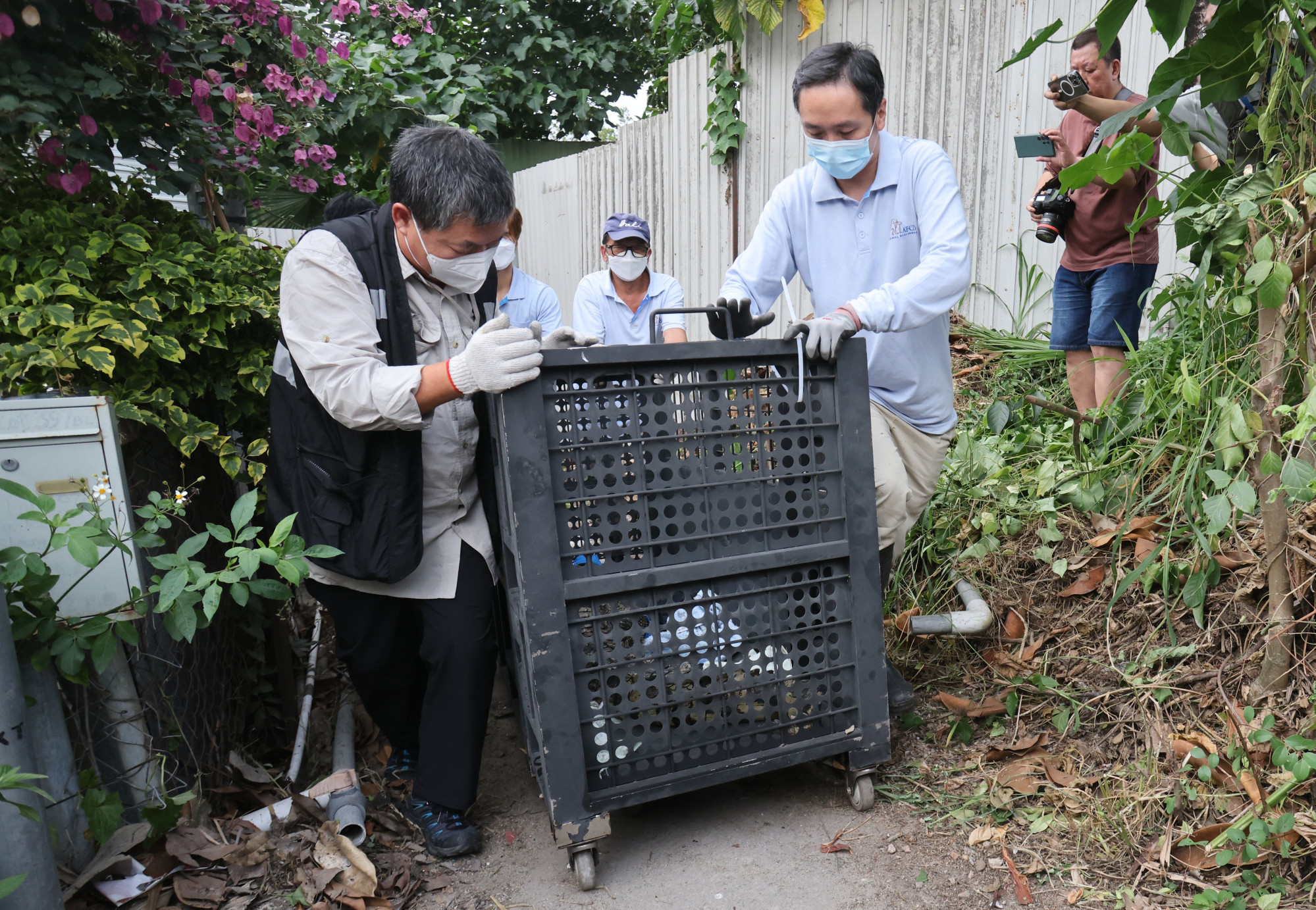
Crocodile a reminder of Hong Kong’s cruel wildlife trade
- Experts believe the creature found in the city was smuggled in as a pet and later abandoned, underlining the need for stiffer penalties
Despite its relatively small size and heavy urban development, Hong Kong has an amazingly rich variety of wildlife. It has also come across some rare visitors, from endangered migratory birds in the Mai Po nature reserve to whales frolicking in Victoria Harbour or stranded on Sai Kung beaches.
But the unusual discovery of a crocodile near a settlement in the New Territories has aroused more than curiosity.
Given the reptile is not an indigenous species, the only logical conclusion, experts say, is that it has been smuggled in as a pet and later abandoned. The two-metre Siamese crocodile was first spotted by a domestic helper in the yard of a neighbouring house in Pat Heung on Sunday.
It was caught by conservation officials and police a few hours later and transferred to Ocean Park.

The origin of the animal remains unclear at this stage. The suggestion that there was an animal hospice facility nearby has fuelled further speculation.
But the emergence of such a protected species clearly means something is amiss. Under the local laws and the Convention on International Trade in Endangered Species of Wild Fauna and Flora, the import, export, re-export or possession of animals under the treaty would require an official licence.
A similar drama occurred in 2003 when a 1.5-metre saltwater crocodile was seen along a creek off the Shan Pui River, though it took the authorities seven months to capture the elusive animal. Since then, there have been at least two reports of crocodiles sighted and captured.
The cases show the illegal trading and smuggling of wildlife is continuing, if not increasing.
The Protection of Endangered Species of Animals and Plants Ordinance was last strengthened in 2018, with maximum penalties raised from HK$5 million and two years’ imprisonment to HK$10 million and 10 years’ imprisonment. Officials stressed enforcement actions were taken from time to time.
But there are obviously gaps to fill. The city has seen growing demand for exotic animals as pets in recent years.
As cross-border activities return following the reopening of checkpoints, the illegal wildlife trade may become more active. Stronger law enforcement is required.

